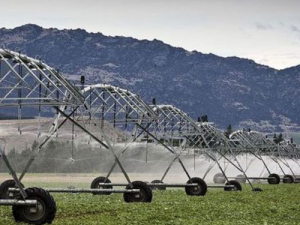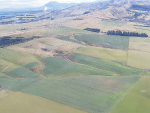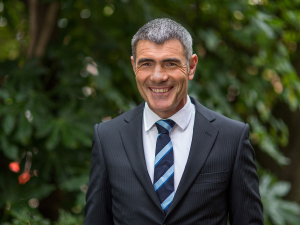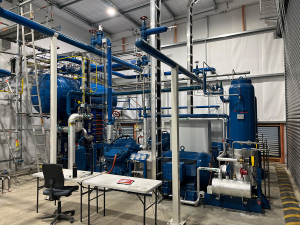They’re as much a part of the traditional kiwi summer as burnt sausages and backyard cricket and despite their late arrival, water restrictions are now in place in most regions.
While most of us can accept that our carefully-tended lawn will soon become a pocket square of brown dirt, we tend to get a little bit upset when just down the road we see irrigators operating.
“It’s natural for people to question it” said IrrigationNZ chief executive, Andrew Curtis. “But what they often don’t understand is that irrigators operate under the same regulatory regime that town water supplies do, and that town water supplies actually have a priority – irrigators always get restricted from taking water from a river or aquifer long before towns do.”
However, in urban areas, household restrictions are driven by the infrastructure’s capacity to supply; no town water supply system is built to cope with peak demand, which is everyone watering their garden at the same time in the height of summer.
“The pipes in the ground would have to be much, much bigger; the cost would be prohibitive and rates would be astronomical” says Curtis.
Instead, councils design their water supply systems to provide a daily volume of water at a low rate of supply, and use restrictions to manage water use during hot, dry periods. These restrictions often kick in long before the Council would be subject to water restrictions under their consent conditions to take water from a river or aquifer. They have to do this so the water supply system can deliver pressurised water to everyone.
“In contrast, irrigators design their irrigation systems and have an allocation of water that enables them to keep their crops alive during the peak of the season. However, they also have consent conditions that stop them irrigating when environmental limits are triggered.
“Water restrictions are imposed on irrigators long before they’re imposed on towns and cities – this is because the law in NZ gives priority to domestic water supply”.
Another reason many irrigators can keep irrigating is they are part an irrigation scheme that takes water from a more reliable water supply, such as an alpine river that is fed by west coast rainfall or they have created their own reliable water supply through investing in water storage.
Curtis says that rather than criticising irrigators, we could actually learn from them. “We wouldn’t have to sit and watch all our hard work in the garden shrivel up and dry if we simply collected and stored rainwater when it was plentiful, to use when the water supply system comes under pressure. This is exactly what farmers and growers do, only on a much larger scale.”
Another of the concerns people have about irrigation is whether it’s an efficient and responsible use of water.
“We agree it doesn’t help people’s perception when they take a drive around the countryside and see irrigators spraying water onto roads. Aside from the safety issue, no one likes seeing water being wasted.”
The two main culprits for water going over-boundary are the end guns on pivot irrigators and travelling irrigators set up too close to roads. “Both are easy fixes – irrigators need to ensure end guns are set and operating correctly and regularly checked; and when you set up travelling irrigators always have a set-back distance from the road so they’re only watering within the property boundaries.”
Curtis says farmers tended to come under greater scrutiny when water restrictions were in place – “the bar is raised when water restrictions hit towns and cities but the reality is, all New Zealanders need to be responsible with their water use and treat water with the respect it deserves as a valuable resource".



















